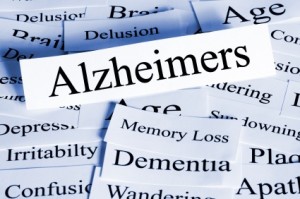Diagnosing early Alzheimer’s and Mild Cognitive Impairment: Emerging Challenges and Implications
February 7, 2012//Comments Off on Diagnosing early Alzheimer’s and Mild Cognitive Impairment: Emerging Challenges and Implications
 Blurry line in diagnosing early Alzheimer’s: study (Reuters):
Blurry line in diagnosing early Alzheimer’s: study (Reuters):
- “The revised definition of a brain condition called mild cognitive impairment means that many people now considered to have mild or early Alzheimer’s disease could easily be given that diagnosis instead, suggests a new study.”
- “Creighton Phelps, head of the Alzheimer’s Disease Centers Program at the National Institute on Aging, said that to a certain extent, the line between mild cognitive impairment and early Alzheimer’s is indeed “fuzzy” and depends on a doctor’s individual judgment. But he added that many researchers still think there’s a point in between normal thinking and functioning and Alzheimer’s dementia that deserves its own category.”
- “Whitehouse said that all of the divisions between normal and mild cognitive impairment and Alzheimer’s miss the most important point: that everyone, as they age, should be taking steps to maintain their brain health. That includes keeping your mind and body active, eating a healthy, Mediterranean-style diet and keeping engaged socially, he added.”
Study: Revised Criteria for Mild Cognitive Impairment May Compromise the Diagnosis of Alzheimer Disease Dementia (Arch Neurol). From the abstract:
- Results Almost all (99.8%) individuals currently diagnosed with very mild AD dementia and the large majority (92.7%) of those diagnosed with mild AD dementia could be reclassified as having MCI with the revised criteria, based on their level of impairment in the Clinical Dementia Rating domains for performance of instrumental activities of daily living in the community and at home. Large percentages of these individuals with AD dementia also meet the revised “functional independence” criterion for MCI as measured by the Functional Assessment Questionnaire.
- Conclusions The categorical distinction between MCI and milder stages of AD dementia has been compromised by the revised criteria. The resulting diagnostic overlap supports the premise that “MCI due to AD” represents the earliest symptomatic stage of AD.
To Learn More, you can read:
- The Future of Preventive Brain Medicine: Breaking Down the Cognition & Alzheimer’s Disease Alphabet Soup, by Dr. Dharma Singh Khalsa
Posted in Brain/ Mental Health
About SharpBrains
SHARPBRAINS is an independent think-tank and consulting firm providing services at the frontier of applied neuroscience, health, leadership and innovation.
SHARPBRAINS es un think-tank y consultoría independiente proporcionando servicios para la neurociencia aplicada, salud, liderazgo e innovación.


